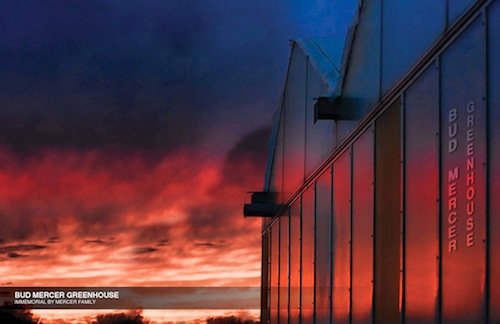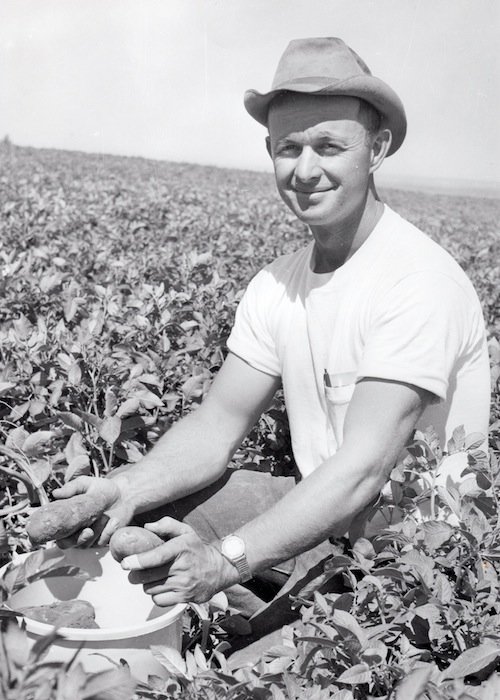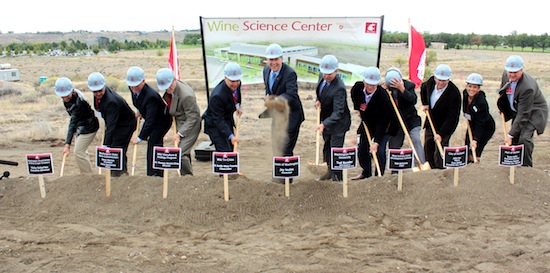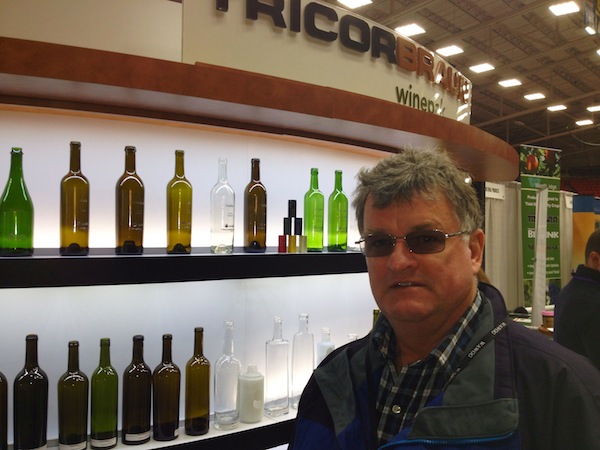
RICHLAND, Wash. – A prominent longtime grape-growing and winemaking family is donating a quarter-million dollars to the Washington State University Wine Science Center.
The Mercer family and Mercer Canyons is giving a combined donation of $250,000 in memory of patriarch Bud Mercer Jr. to build a greenhouse. The gift was announced Wednesday during the opening day of the annual convention of the Washington Association of Wine Grape Growers in Kennewick.
Bud Mercer part of pioneer farming family

Mercer, who died in 2010, is part of a Washington farming dynasty that dates back more than 125 years and four generations. The Mercer family became part of the wine industry in 1972 when Don Mercer, Bud’s brother, planted Mercer Ranch Vineyards in the Horse Heaven Hills. Today, it is Champoux Vineyards, arguably Washington’s most famous vineyard.
In the 1980s, the Mercers launched Mercer Ranch Carrot and Corn Packing and sold carrots around the world. In 2007, Bud Mercer and longtime friend and fellow farmer Mike Hogue launched Mercer Estates in Prosser. The winery opened in 2009. The first few vintages were made by David Forsyth, who was Hogue’s longtime winemaker at Hogue Cellars. He has since taken over winemaking duties at Zirkle Wine Co. in Prosser.
Today, Mercer Estates is run by brothers Rob and Will Mercer, and former Chateau Ste. Michelle assistant winemaker Jessica Munnell is the head winemaker.
“Bud was a great leader, businessman, husband and family man,” said Patsy Mercer, his widow. “He invested his time, effort and resources to support people, ideas and opportunities he believed would make a difference to the industry and to our community. The Wine Science Center will play a vital role in the Pacific Northwest as a center for research and education. It is a fitting tribute to honor Bud’s memory by ensuring that the facility has a research greenhouse to support the needs of the Washington wine industry.”
Wine Science Center under construction

The Wine Science Center, which is under construction at the WSU Tri-Cities campus in Richland, will house one of the world’s top wine research and teaching institutes when it opens in 2015. It is being built by the city of Richland on land donated by the Port of Benton, adjacent to the WSU Tri-Cities campus. Once the Wine Science Center is built, the land and building will be donated to WSU and become part of its viticulture and enology program.
The Wine Science Center will cost $23 million in cash and in-kind donations. In 2011, the Washington wine industry – growers and winemakers – pledged $7.4 million toward construction of the Wine Science Center. Since then, all of the money for construction has been raised, but an additional $4 million needs to be raised to fully equip the building when it opens in 2015. Most of the funding has come from wineries, wine-related companies and private donors. The Washington State Legislature also kicked in $5 million in 2012.
In September, Gov. Jay Inslee helped break ground on the Wine Science Center. The 39,300-square-foot building is about 15 percent completed.

Trade show draws interest from beyond Washington
The trade show portion of WAWGG convention keeps the Tri-City Americans of the Western Hockey League from using their home rink, but Canadian winemakers were walking the floor of the Toyota Center on Wednesday.
This year, Bill Eggert of Fairview Cellars in Oliver, British Columbia, stuck with his tradition and chose the WAWGG over the Unified Wine and Grape Symposium in Sacramento, Calif.

“I try to come down here every year, unless I go to California, but it’s a little more difficult to get down there,” he said.
“And they don’t have any water down there right now, so I might as well come to somewhere that has water,” he added with a chuckle.
Eggert, who has developed a reputation as one of the province’s most outspoken winemakers, planted his vineyard near the first green at Fairview Golf and Country Club back in 1993 and began producing wines four years later. He remains one of the smallest producers along Oliver’s Golden Mile.
Recent successes have prompted him to redesign his crush pad, so he is attending WAWGG to gather ideas while browsing the trade show. He also enjoys visiting with Washington winemakers and growers.
“The areas are close enough that the problems we have (in the Okanagan Valley) are the problems that you guys have,” Eggert said. “I’ve got some friends here in Washington who are going to take me to their vineyard, and I’ll connect with suppliers, and I also just want to get the buzz about what’s going on.
“I love coming down (to Washington) because you guys are way more confident than we are, way more energetic and way more upbeat about markets and wine sales,” Eggert added. “There’s just a positive feel about it. We’re a lot more negative in the north. It’s part of the Canadian identity.”
Ice wine harvest took place historically early in the Okanagan Valley when on Nov. 20 temperatures reached minus-9 Celsius (17 Fahrenheit). The winter hasn’t provided any major weather episodes so far, Eggert said.
“I say that, and I just heard that Kelowna was minus-19, but you’ve got to get down to minus-24 before you start to panic,” Eggert said.
What the British Columbia wine industry needs to work on at this point, he said, is better self-promotion.
“We’re in a surplus position on grapes right now, but how long that will last we’ll see,” he said. “Our biggest challenge is marketing, but again that goes back to the Canadian identity. It’s got to be foreign for it to be good in Canada. It’s completely different here. You’ve got fantastic wines and your people know it.”

Leave a Reply